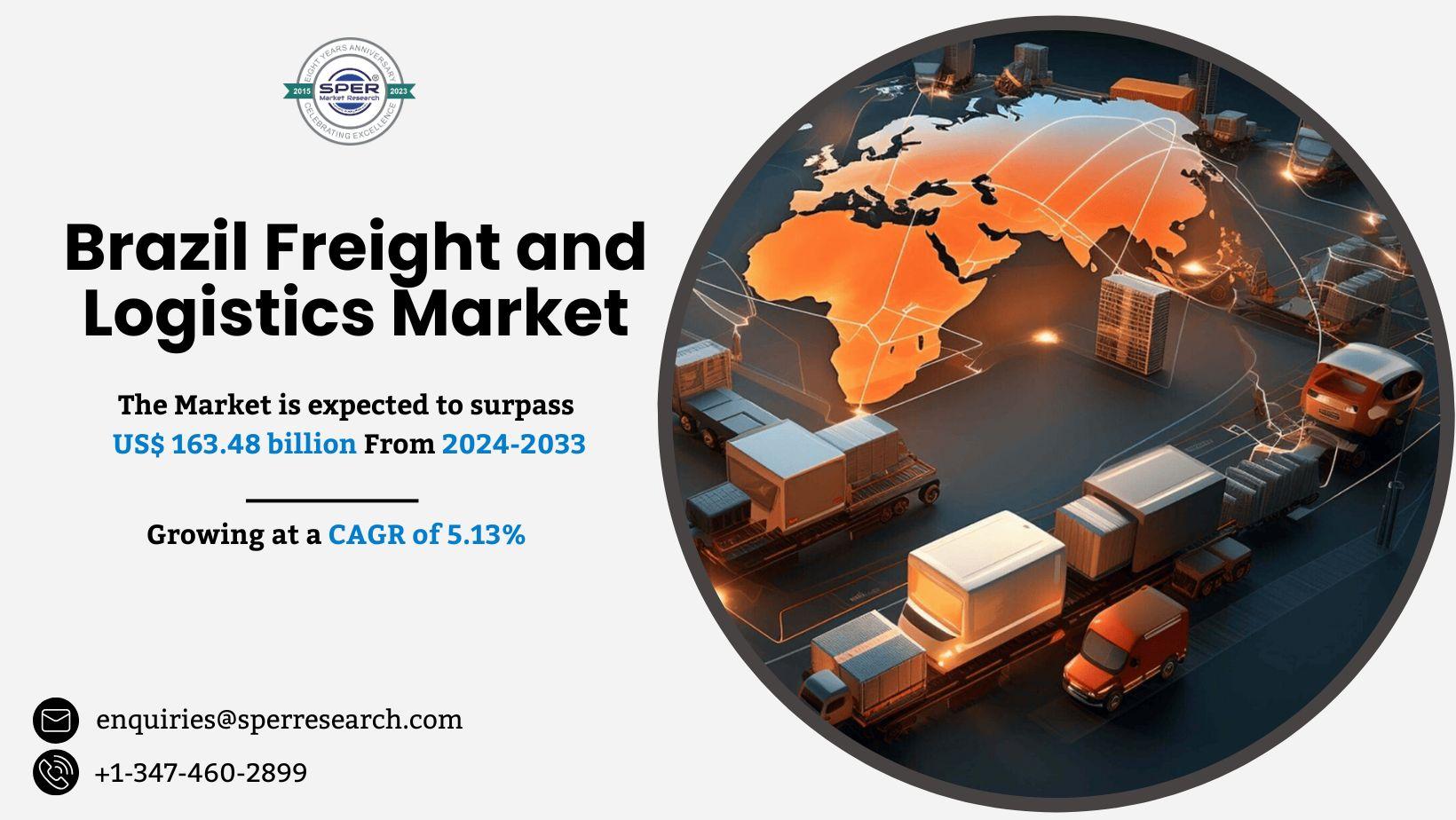The procedures involved in moving, storing, and delivering items from one place to another are referred to as freight and logistics. This sector is essential to international trade and supply chains because it makes sure that goods are delivered to customers and businesses quickly and effectively. Road, rail, air, and sea transportation are all included, as are storage, inventory control, and distribution services. Automation, data analytics, and GPS monitoring are examples of technological innovations that have greatly increased operational efficiency. The freight and logistics industry continues to be crucial for tying markets together and propelling global economic growth as e-commerce and international trade expand.
According to SPER Market Research, “Brazil Freight and Logistics Market Size- By Function, By Type, By End User- Regional Outlook, Competitive Strategies and Segment Forecast to 2033” states that Brazil Freight and Logistics Market is estimated to reach 163.48 USD billion by 2033 with a CAGR of 5.13%.
Drivers:
A number of important elements drive the freight and logistics business. E-commerce's explosive expansion has raised demand for dependable and quick delivery services. The necessity for cross-border transportation keeps growing as a result of globalization and increased international trade. Automation, data analytics, and real-time tracking are examples of technological innovations that increase productivity, transparency, and customer happiness. Businesses are being pushed to improve their logistics networks by urbanization and growing customer expectations for same-day or next-day deliveries. Logistics skills are further improved by government expenditures in smart transportation networks and infrastructure. The rise of sectors like as manufacturing, retail, and healthcare also contributes to the steady demand for freight services, which in turn supports the logistics market's overall growth.
Brazil Freight and Logistics Market Sample in PDF Format, Click Here
Restraints:
The Logistics and Freight sector face a number of formidable obstacles. Operations and delivery schedules may be significantly impacted by supply chain interruptions brought on by pandemics, natural catastrophes, or geopolitical unrest. Profitability is strained by rising gasoline prices and shifting transportation costs. Particularly in developing nations, infrastructure bottlenecks cause delays and higher operating expenses. Efficiency is impacted by labor shortages, especially in trucking and warehousing. Furthermore, last-mile delivery management is still a challenging task, particularly in light of growing e-commerce expectations. Environmental rules, customs processes, and regulatory compliance all increase complexity and expense. Last but not least, risks are increased by cybersecurity concerns and the requirement for ongoing technology advancements, necessitating ongoing investment and innovation to remain competitive.
São Paulo region held the biggest revenue share in the Brazil Freight and Logistics Market. This dominance is attributed due to its economic importance, vast consumer base, and extensive logistics infrastructure, including major highways and a large fleet of trucks for domestic transport. Some of the key market players are Braspress Transportes Urgentes, DHL Group, FedEx, JSL SA, Kuehne + Nagel, Log-In LogÃstica Intermodal.
For More Information, refer to below link: –
Brazil Freight and Logistics Market Growth
Related Reports:
Asia-Pacific Third Party Logistics Market Size
Saudi Arabia Electric Bike Market Size
Follow Us –
LinkedIn | Instagram | Facebook | Twitter
Contact Us:
Sara Lopes, Business Consultant — USA
SPER Market Research
enquiries@sperresearch.com
+1–347–460–2899



